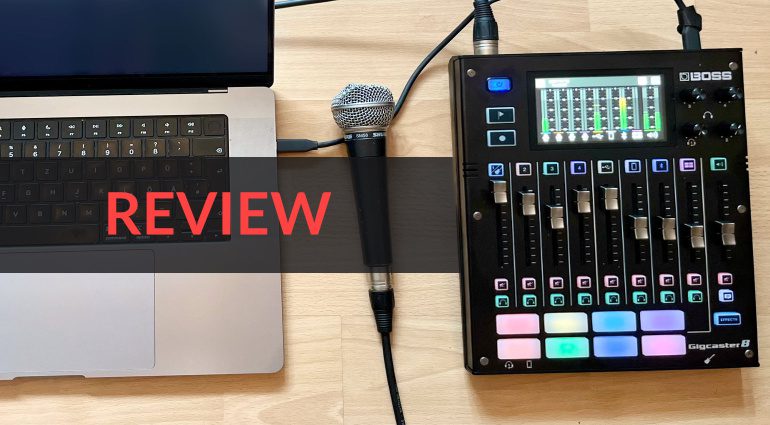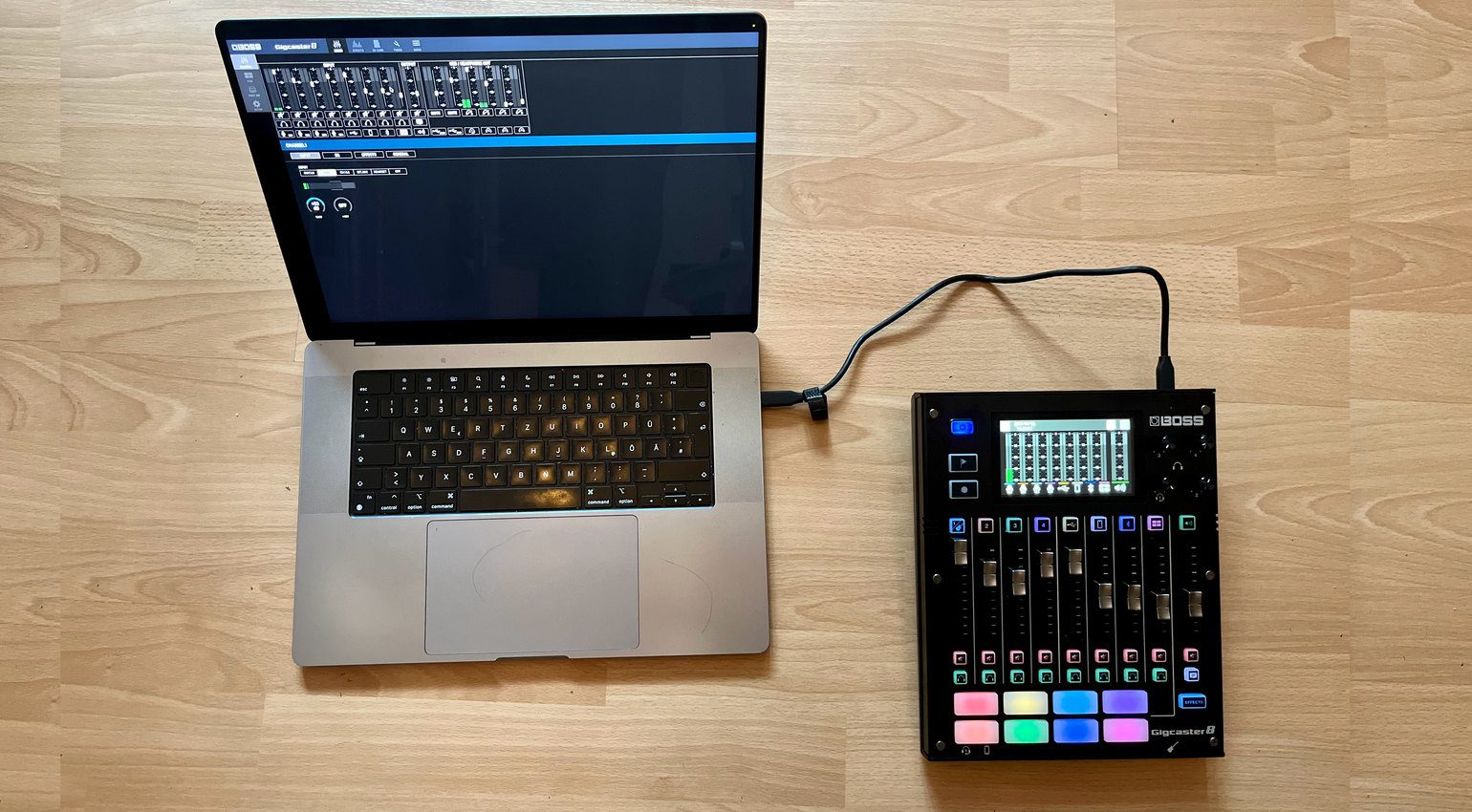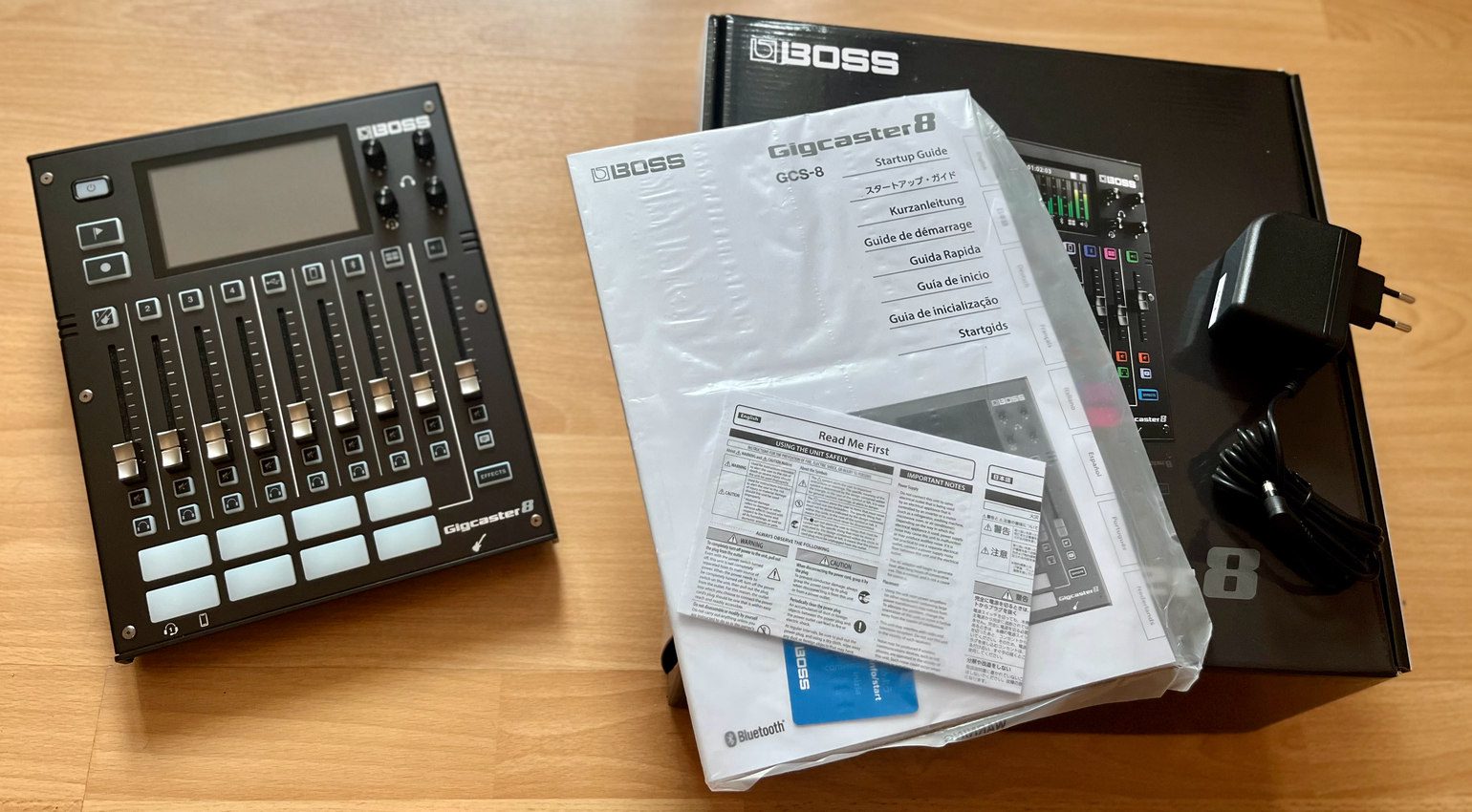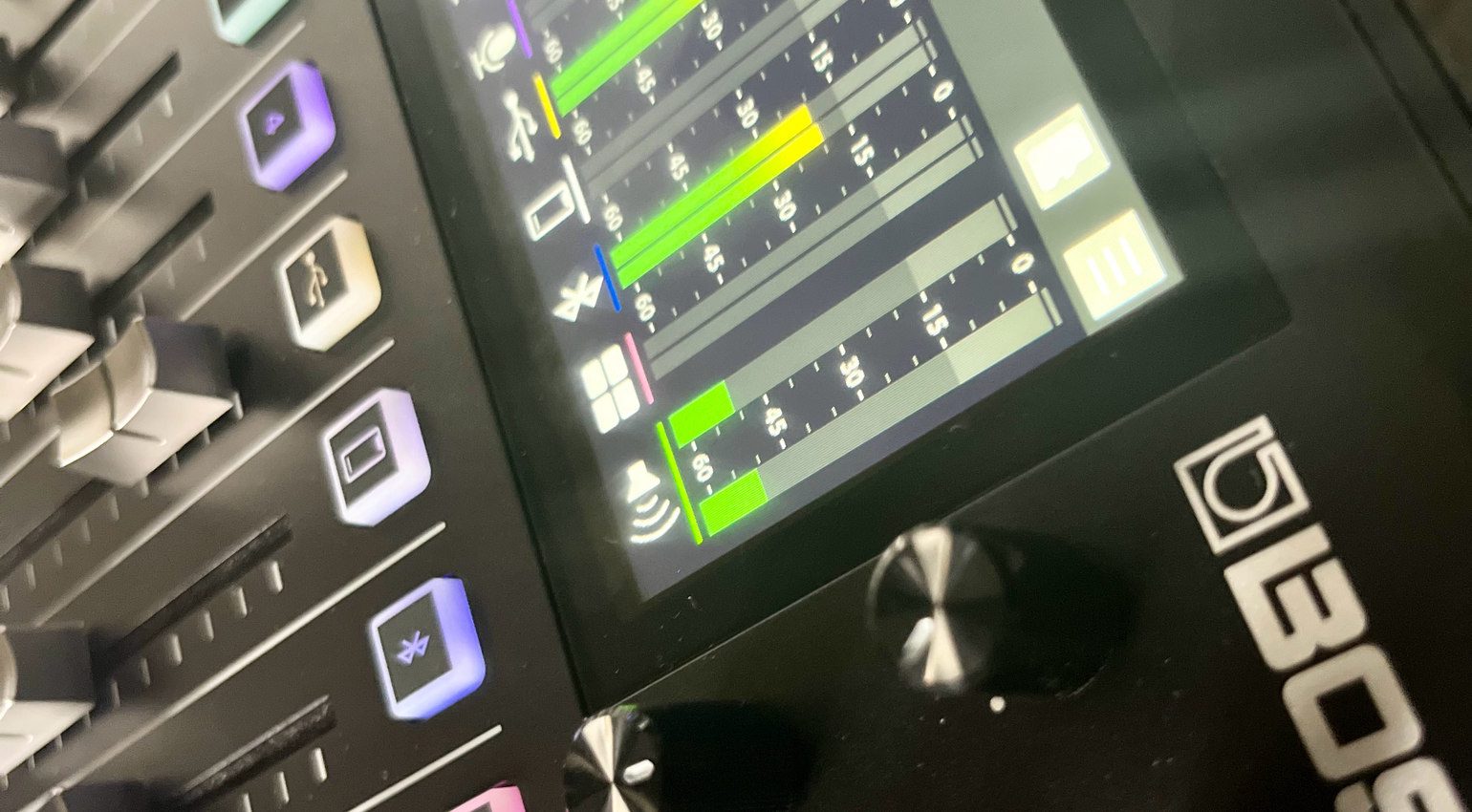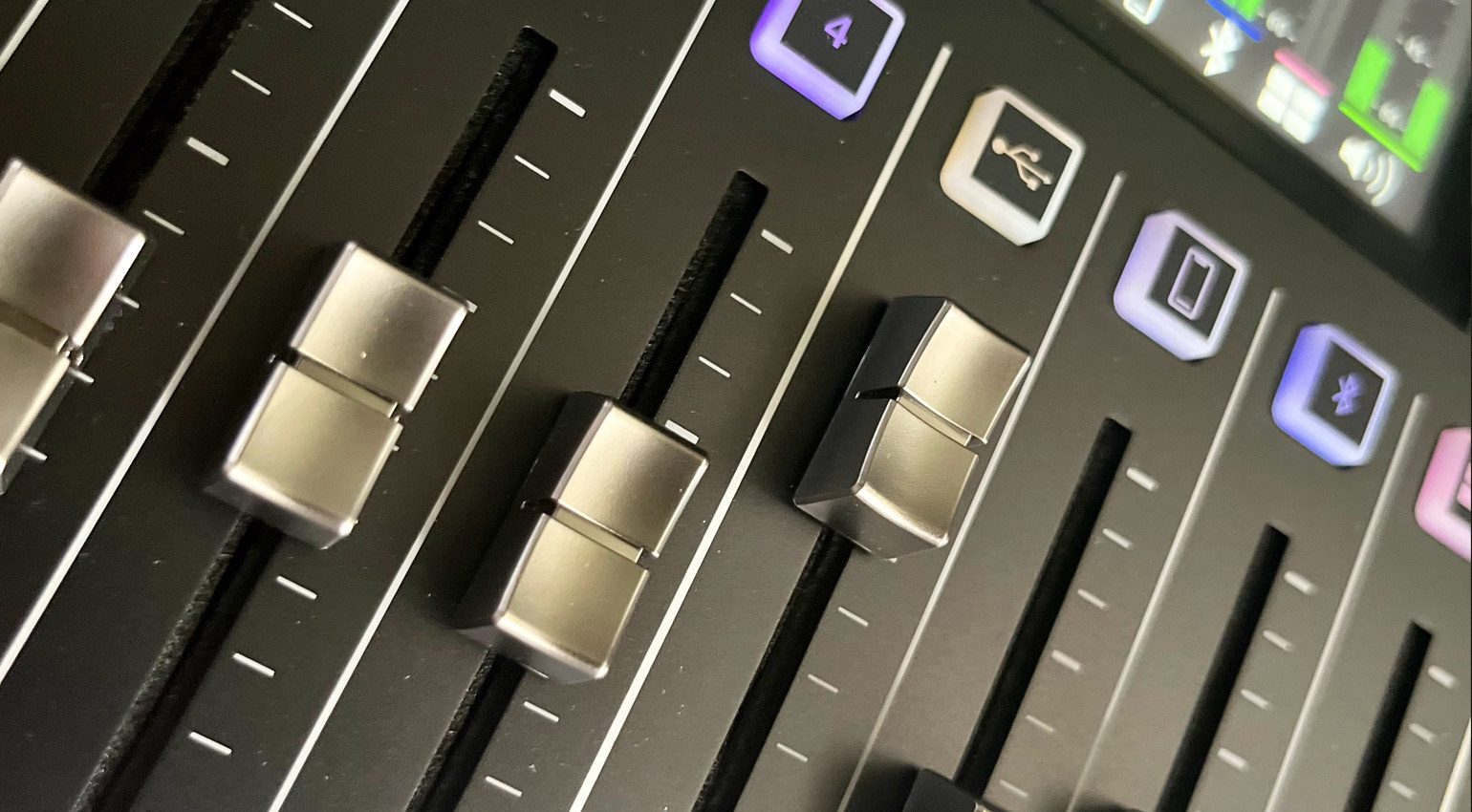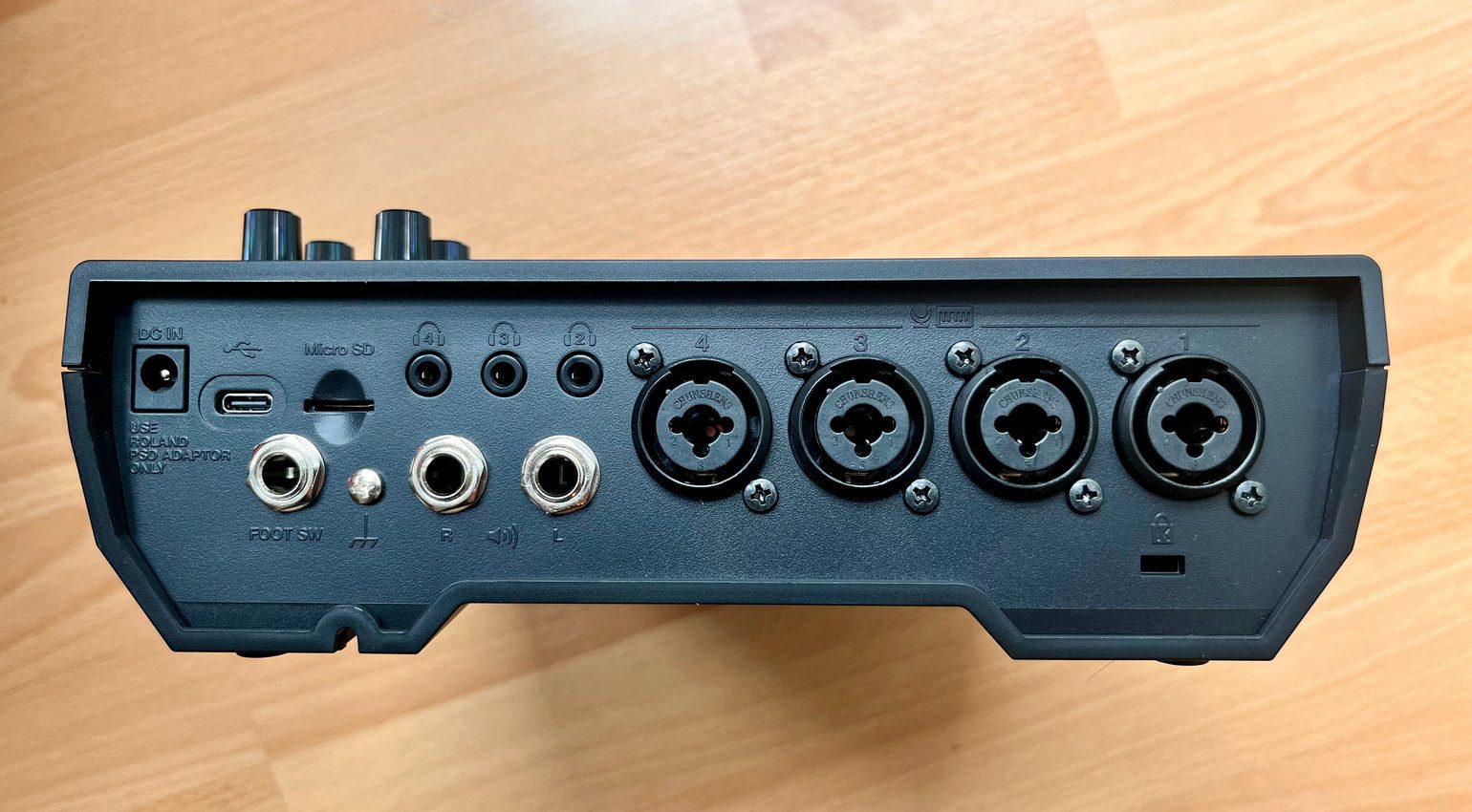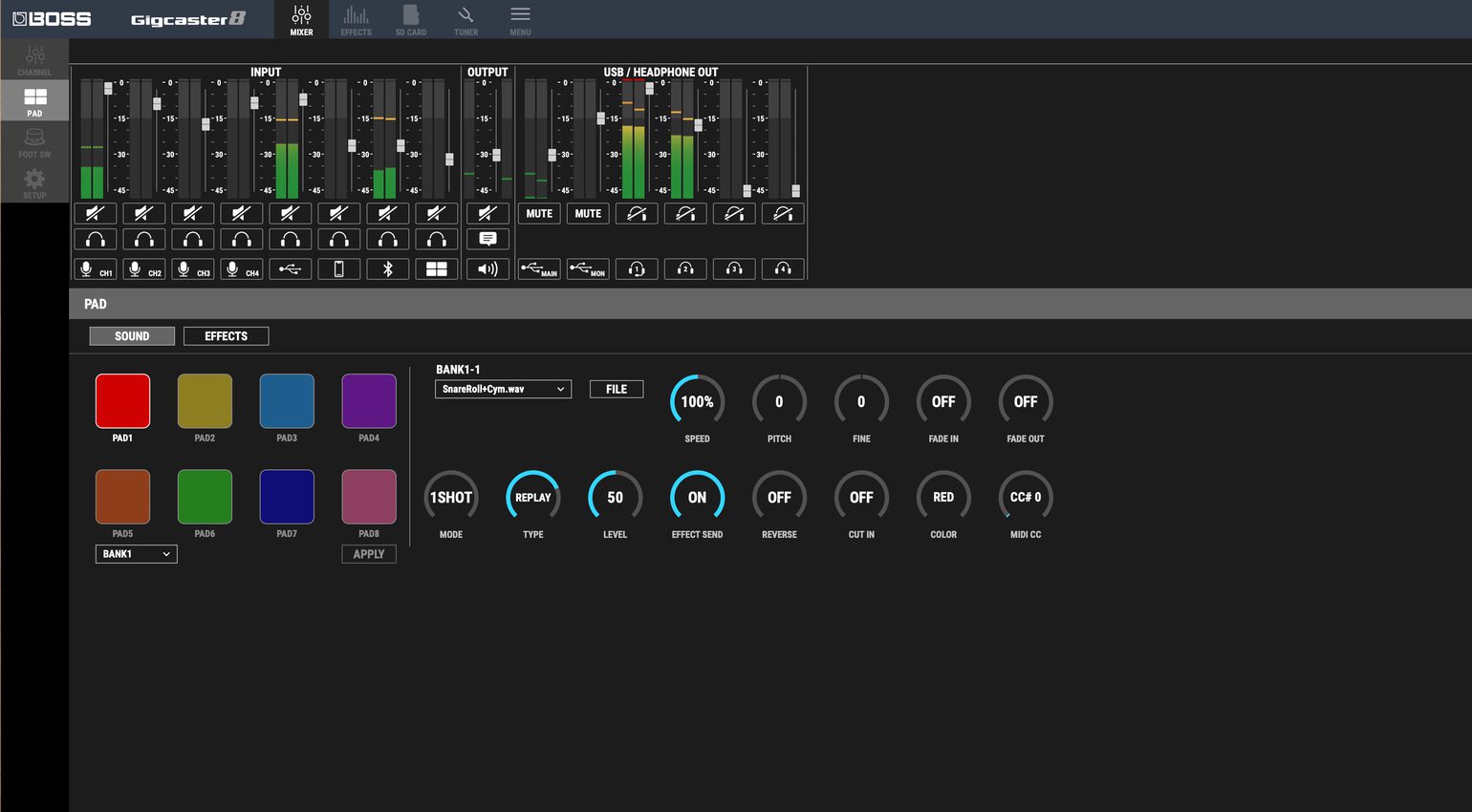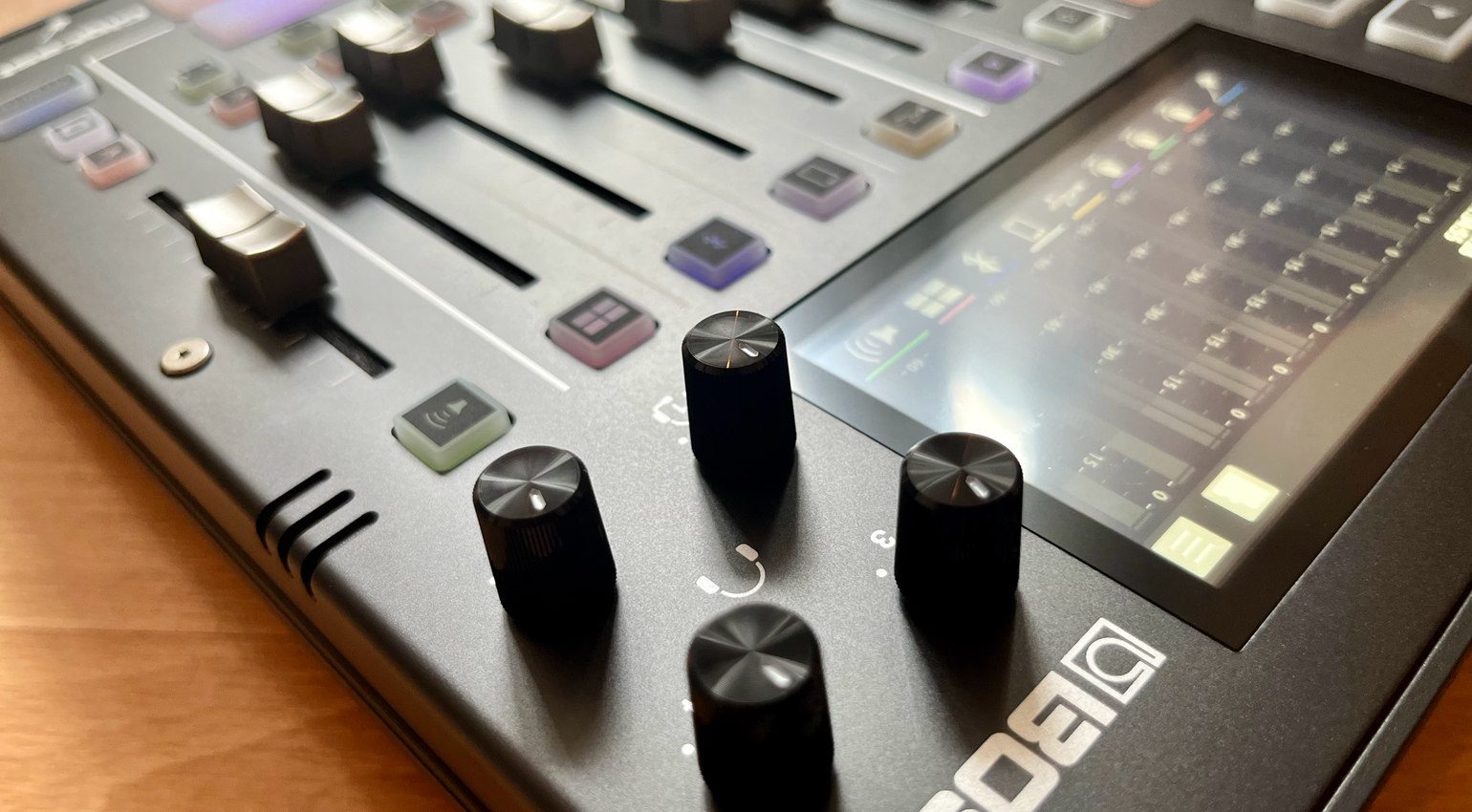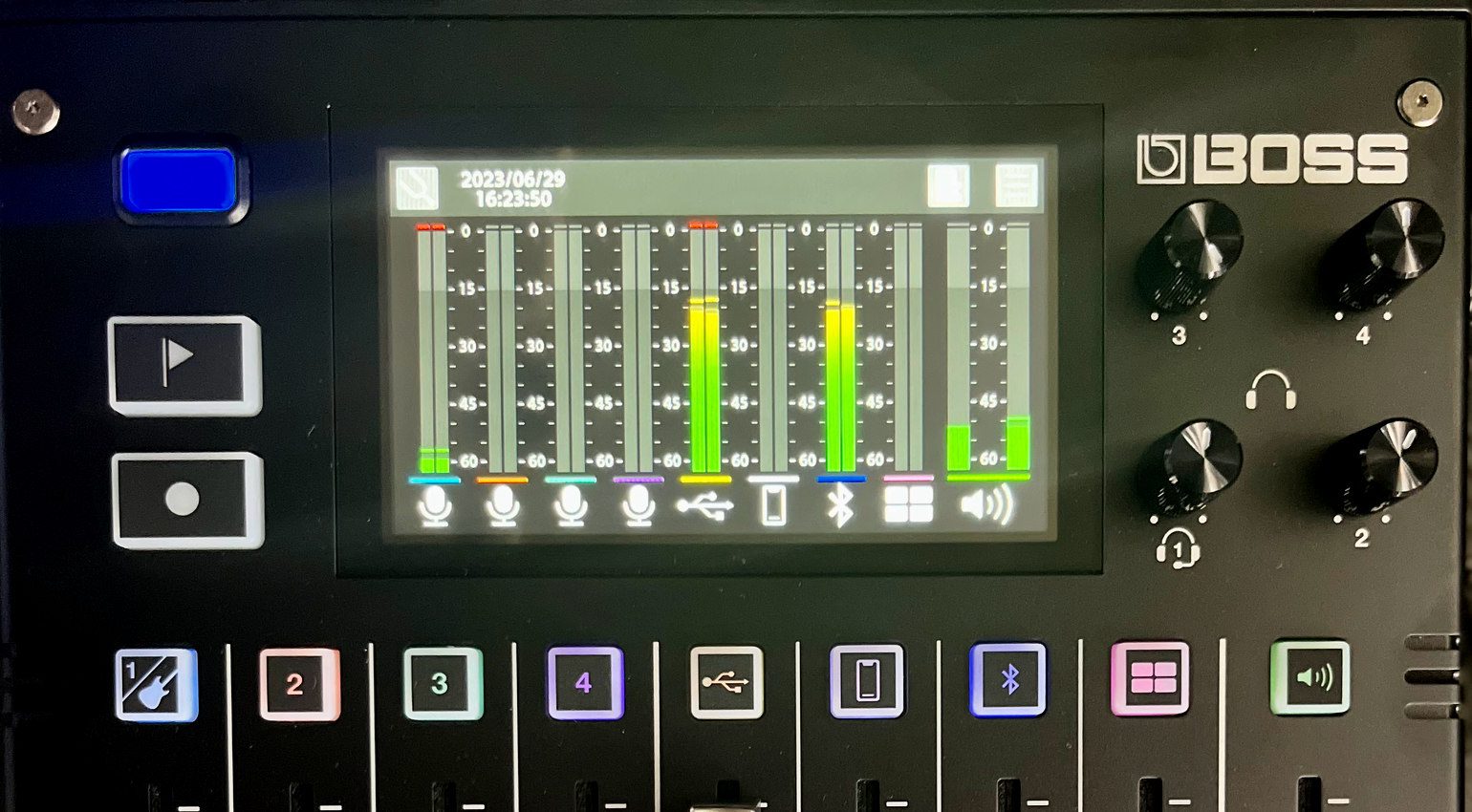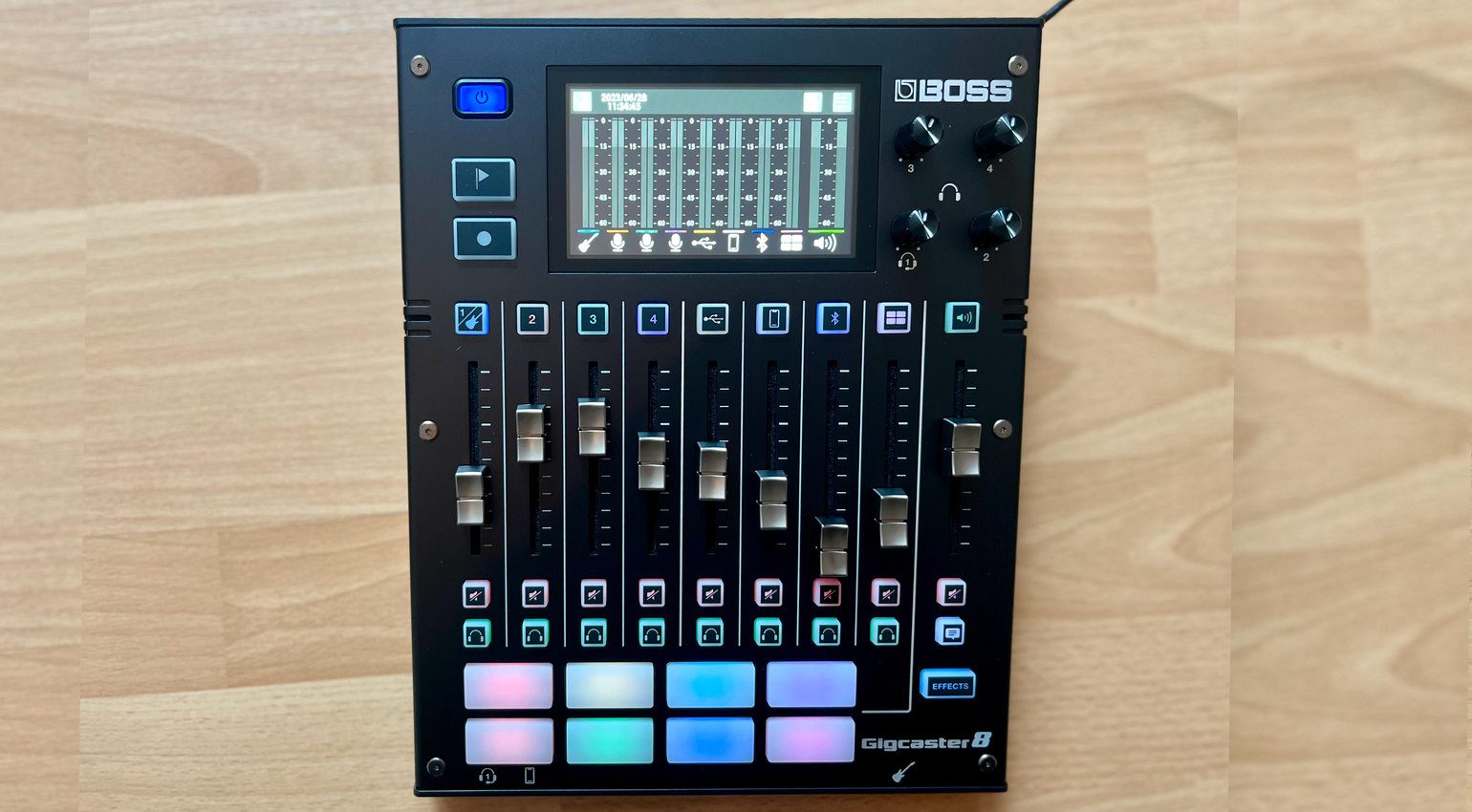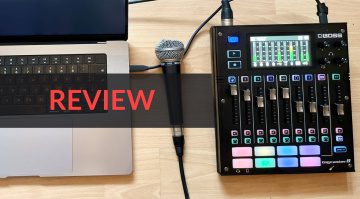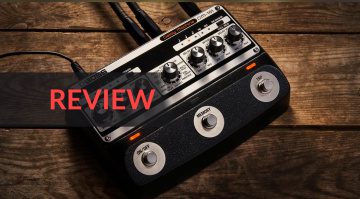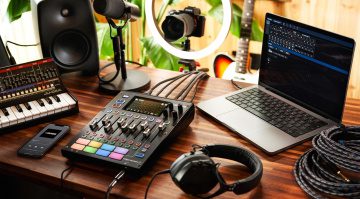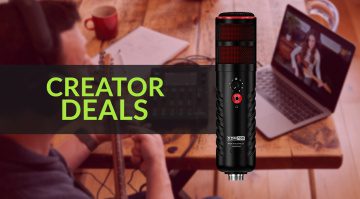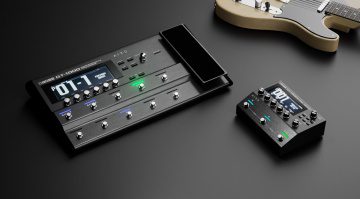Boss Gigcaster 8 review: Podcast and live stream mixer for the masses?
With the Gigcaster series, Boss joins a growing number of compact mixers with colorful pads and mobile recording features for podcasters and content creators. Similar to Rode RODECaster or Roland Aerocaster, Boss Gigcaster 8 is loaded with features and possibilities. Is it the perfect compact mixer for everyone?
Originally published on Gearnews.de by Julian Schmauch. Translation by Julian Schmauch
Highlights
- 8 inputs: 4x combo (XLR/Line), 1x guitar (Hi-Z), 1x Bluetooth, 1x smartphone mini jack, 1x USB audio.
- High-quality guitar effects from Boss GT-1000 series
- 48 kHz sample rate, 32-bit bit rate playback, 24-bit recording
- Multitrack Recording to microSD card
- Built-in talkback microphone
- Touchscreen
- 8 pads for triggering sounds or switching effects
- Four headphone outputs
- Powered by AC adapter or USB-C
Gigcaster 8 – What’s the story?
Like the RODECaster from Rode or the Aerocaster from Roland, Boss Gigcaster 8 and its little brother Gigcaster 5 are aimed primarily at podcasters and content creators. However, Boss has packed a whole range of effects from its popular GT-1000 guitar multi-effects pedal into the mixer.
And so it’s only logical that the Gigcaster also comes with a high-impedance guitar input on the front. Does that make the compact mixer the perfect tool for the rehearsal room? Or rather, for online lessons?
Unboxing Boss Gigcaster 8
Mixer, power supply, QuickStart guide – that’s it. The lack of a USB-C cable is somewhat surprising. Boss seems to follow Apple’s track here. The Mac manufacturer stopped including a power supply with the iPhone 12. Boss seems to assume that we all are loaded with USB-C-to-USB-C cables just as much as with our boxes full of aging USB-A cables.
In terms of size, Boss Gigcaster 8 belongs in the backpack category – or if you’re really Rock ’n Roll, wrapped up in a towel and carried to the rehearsal room in an IKEA bag. Once you plug it in and turn it on, Gigcaster 8 shines in bright colors and sports an easy-to-read screen.
Gigcaster 8 as your audio hub
4 combo jacks on the back (XLR and Line) with optional phantom power, a high-impedance guitar input on the front, one channel for Bluetooth, another mini-jack input for audio signals from a smartphone or tablet, and a channel for USB audio from a computer – that makes eight!
Channels 1-4 can be used either as four mono channels or two stereo pairs, set via the touchscreen. Every other setting is also available via the touchscreen: effects, panning, routing – the menu structure is very easy to understand.
On the output side, there’s a stereo jack pair and four stereo mini-jack headphone outputs (one in front and three in back). The master volume is controlled by the ninth fader on the far right. There are also separate volume controls for each of the four headphone outputs on the top right.
Boss Gigcaster 8 for podcast productions
And this is such a useful feature when you’re producing a podcast. Each speaker can set the volume for their connected headphone themselves. And each channel has a dedicated monitoring button for this purpose as well. If you press it, the signal can only be heard on the headphones, not in the output.
Boss Gigcaster 8 can also record directly to a microSD card (not included), even in multitrack format. So you can just take the mixer and its power supply to any trade show or anywhere on the road (and microphones, of course) and record interviews or podcasts on the go.
Also, the included effect presets in the “Talk” section offer 30 well-designed presets for almost every voice timbre and most microphone characters to record professional sound immediately.
Content creation and live streaming with the Gigcaster 8
Boss Gigcaster 8 works equally well for live streams or for content creators on YouTube, Instagram, or Tik Tok. Because the compact mixer can also be used as an audio interface via its USB-C port.
And then you just fire off sound effects from the eight colorful pads in the live stream. Or you use them to switch between different voice effects. There are a total of eight banks with eight pads each, making 64 sounds, which can all be stored on 16 gigabytes of internal memory.
The best way to set up each sound on its pad is to use the Gigcaster software, which you can download for free from Boss. It offers settings like play mode (one-shot or loop), trigger mode (only when holding the pad or playing out), pitch, speed and more for each sound and each pad. You can also easily use ducking on the Gigcaster. That way, an audio signal coming from a pad or from Bluetooth is lowered whenever someone speaks.
Boss Gigcaster 8: in the rehearsal room and for online lessons
Surely this would make Boss Gigcaster 8 perfect for small band setups in the rehearsal room? Because in addition to all the features I mentioned, the integrated talkbalk microphone, through which you communicate directly with all connected (even Bluetooth and USB if desired) headphones, is an extremely useful feature for smaller recording situations. Almost perfect.
One crucial function is missing: separate monitor mixes. All four headphone outputs get the same mix. Only the overall volume can be set separately. So if just the singer wants her voice louder, the guitarist (of course) wants to hear himself louder, and the drummer just needs the click, you’re out of luck – for now.
It seems rather likely that Boss will add this function in a future firmware update. Because, as Gaz Williams noted in his review (see below), EQ can now already be set separately for each headphone.
On the other hand, Gigcaster 8 is a perfect tool for online lessons, especially guitar. You just plug in your guitar and a headset, plus your smartphone with music, loop in the audio signal from your stream – zoom on, teach, go! Even a tuner is built in!
Conclusion
Boss Gigcaster 8 comes pretty close to being a perfect compact mixer. If I were a podcaster, guitar teacher, or content creator, I wouldn’t hesitate to recommend it.
But I’m a band musician, a drummer, and a songwriter. And I was really excited about the included effects. And they sound pretty damn good, by the way, whether you’re playing electric guitar or acoustic guitar.
But the missing option for separate monitoring for the headphone outputs is a bit of a dealbreaker for me. Here is to hoping that Boss will release a firmware update with that option soon. And I’m not so sure that USB-C to USB-C cables are already as common as Boss likes to believe. It would have been a nice gesture, had they included one.
Prices and specifications of the Boss Gigcaster 8
Boss Gigcaster 8 is available now from Thomann* for 759 euros. Its little brother Boss Gigcaster 5 costs 549 euros, also at Thomann*.

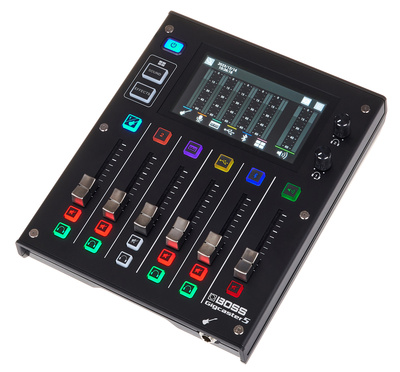

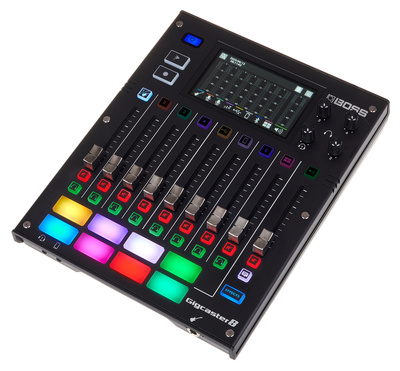
Pros and cons Boss Gigcaster 8
Pros
- Guitar effects sound great
- Fast and easy workflow for podcasters and content creators
- Compact format convenient for mobile use
- USB-powered
- Integrated talkback microphone
- Real-time effects can also be used on the computer
Cons
- No USB-C cable included
- No separate monitoring settings for the four headphone outputs are possible
Videos on the Gigcaster 8
You are currently viewing a placeholder content from YouTube. To access the actual content, click the button below. Please note that doing so will share data with third-party providers.
You are currently viewing a placeholder content from YouTube. To access the actual content, click the button below. Please note that doing so will share data with third-party providers.
* This Boss Gigcaster 8 review contains affiliate links and/or widgets. When you buy a product via our affiliate partner, we receive a small commission that helps support what we do. Don’t worry, you pay the same price. Thanks for your support!

 4,4 / 5,0 |
4,4 / 5,0 | 